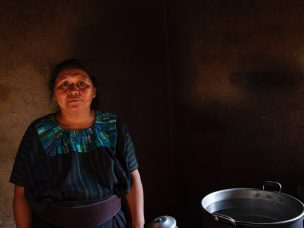Clinical Trials
Gynecologic Cancer Clinical Trial Guidelines During COVID-19
As a result of the COVID-19 pandemic, clinical trials have been put in a very complex position. The standard ways that many clinical trials are run are difficult to maintain with strained access to supplies, destabilized schedules, and additional health regulations. This article, published in Gynecologic Oncology, provides an analysis of best practices for conducting...
Reasons for Low Cancer Clinical Trial Enrollment
Patient participation rates in clinical trials can directly impact future patient outcomes, as high enrollment is necessary for understanding the effects of novel therapies. In addition to sheer enrollment numbers, clinical trial enrollment must also adequately represent the population in terms of race, age, and other factors. Unfortunately, there are currently significant disparities in cancer...
Improving Prostate Cancer Outcomes for Black Men
Advances in screening rates, genomic testing, imaging, and treatment have led to a 98% 5-year survival rate among men with prostate cancer. Nevertheless, prostate cancer remains the leading cancer diagnosed in American men. Black men suffer from prostate cancer with a higher incidence and decreased survival. On average, they are diagnosed at a younger age,...
Racial/Ethnic Disparities in Stem Cell Clinical Trials
In a study published in Studies in Health Technology and Informatics, two researchers analyze racial/ethnic disparities in stem cell clinical trials. They note that racial/ethnic representation is critical in stem cell research because allelic polymorphism among races/ethnicities can affect stem cell compatibility. Moreover, these polymorphisms affect other clinical outcomes such as drug metabolism/sensitivity and treatment success. ...
Advancing People of Color in Clinical Trials
This article describes the creation of a clinical trial protocol to address the comparatively smaller numbers of Black patients who participate in clinical trials. The researchers note that people of color do not participate in clinical trials as often as white people and that the best way to encourage them to do so is not...
New Initiative Addresses Cancer Clinical Trial Disparities
Stand Up To Cancer (SU2C) is an initiative to improve the participation of Black, Indigenous, and People of Color (BIPOC) in cancer clinical trials. The SU2C team consists of doctors and scientists from four New York City institutions specializing in social science and clinical research. This team is a central component of SU2C’s Health Equity...
Diversifying Prostate Cancer Clinical Trial Recruitment
It is essential that the lack of racial and ethnic diversity in prostate cancer clinical trials be addressed to improve health disparities in racial/ethnic minority populations. This study suggests that population-based cancer registries could be used as a source for recruiting minority patients to overcome problems with diversity and inclusion in clinical trial research. In...
Why Black Representation Matters in Clinical Trials
Thanks to Henrietta Lacks, a woman whose cervical cancer cells have significantly contributed to numerous scientific and medical breakthroughs and advancements, the medical community understands so much more about human health and how to treat many diseases. Although Henrietta Lacks passed away in 1951, HeLa cells, as they are called, are still used as a...
How the Integration of E-path Reporting With Clinical Trial Matching Can Help Improve Recruitment of Racially Diverse Prostate Cancer Patients
It is essential that the lack of racial and ethnic diversity in prostate cancer clinical trials be addressed, in order to improve health disparities seen amongst these racial/ethnic minority patient populations. This study suggests that population-based cancer registries could be used as a source for the recruitment in minority patients in order to overcome problems...
More Medical News














